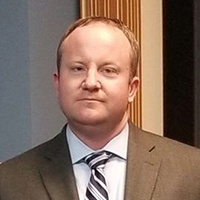New Boston Juvenile Law Lawyer, Michigan
Sponsored Law Firm
-
 x
x

Click For More Info:
-
Quinn and Associates
719 Griswold, Suite 820 Detroit, MI 48226 » view mapWayne County Criminal Law Win with Attorney Quinn!
We are dedicated to each case. We understand that every case is different and will always take the time to offer solutions that will put you in the winner’s circle.
800-661-1940  Christopher Quinn Esq.
Christopher Quinn Esq.Attorney At Law - MI
Detroit Mercy School of Law, J.D. - 2000
 About
AboutClick here to lean more about Mr. Quinn
 Contact UsEmail or Call 24/7
Contact UsEmail or Call 24/7Enter more text from site here
Kenneth A. Thompson
✓ VERIFIEDCriminal, Traffic, Juvenile Law, Personal Injury, Estate
Kenneth A. Thompson was born in Michigan in 1980. He grew up in Westland, Michigan with his mother and sister after losing his father to a heart attac... (more)
George E. Long
Landlord-Tenant, Family Law, Juvenile Law, Criminal, Insurance
Status: In Good Standing Licensed: 9 Years
Steven C. Bullock
Family Law, Divorce, Juvenile Law, Criminal
Status: In Good Standing Licensed: 39 Years
Rebecca Lyn Hicks
Juvenile Law, Employment, Family Law, Criminal, Bankruptcy
Status: In Good Standing Licensed: 15 Years
Gregory Joseph Calabrese
Commercial Real Estate, Family Law, Juvenile Law, Children's Rights
Status: In Good Standing Licensed: 12 Years
Robin M. Persiconi
Commercial Real Estate, Landlord-Tenant, Motor Vehicle, Juvenile Law, Criminal
Status: In Good Standing Licensed: 22 Years


 Christopher Quinn Esq.
Christopher Quinn Esq. About
About Contact UsEmail or Call 24/7
Contact UsEmail or Call 24/7

